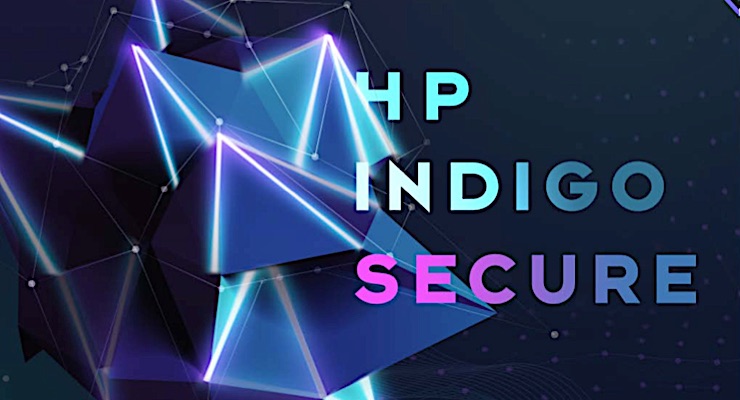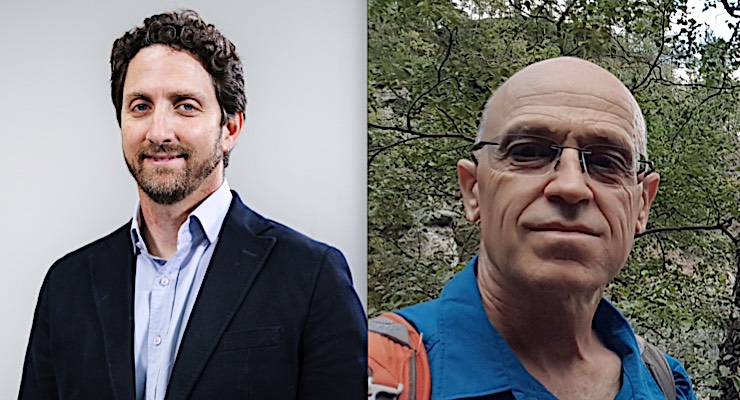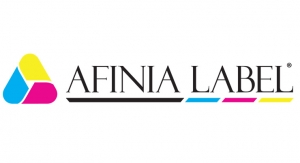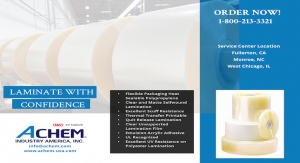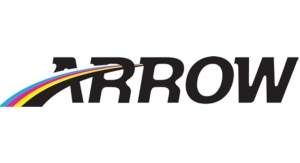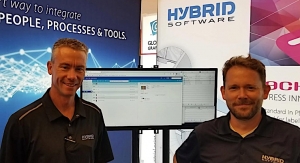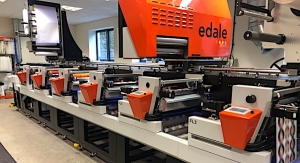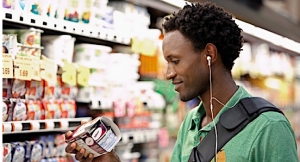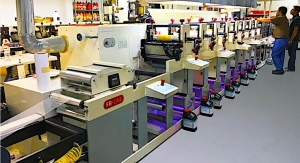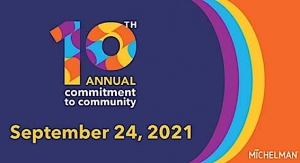Greg Hrinya, Editor07.15.21
Coming off a year in which e-commerce surged exponentially, the fight against counterfeit goods has never been fiercer. Whether that means fake goods or product diversion, the ability to authenticate and track-and-trace has never been more relevant.
Recognizing this trend, HP has launched its HP Indigo Secure portfolio, which touts digital security printing in one pass. The portfolio, which includes the new HP Indigo 6K Secure digital press, includes a host of software and hardware solutions designed to safeguard the supply chain.
To learn more about the HP Indigo 6K Secure, click here. Meanwhile, learn more here about HP's other recent product launches.
For HP, why counterfeiting? As many know, counterfeiting is a business that extends into the billions of dollars. The intended targets range from fake handbags to pharmaceuticals. The counterfeit goods can range from inconvenient to potentially deadly, thus making the need for more secure solutions critical.
According to HP, counterfeit goods account for 3.3% of all global trade. For pharmaceuticals specifically, a recent study illustrated that counterfeits account for 4.03 billion euro. The surge in e-commerce has translated to greater awareness, too, especially as more consumers are using Amazon to purchase products.
In 2018, Alibaba Anticounterfeiting Alliance shut down 524 manufacturing and distribution locations, seizing over $536 million in fake goods. In the future, the estimated impact of counterfeit goods is $4.2 trillion globally.
“We see the potential, but the brands are seeing the need,” notes Amir Raziel, head of strategic marketing, HP Indigo. “If you have advanced technology, you can sidestep this problem, and that’s the beauty of our concept that we’re implementing. You’re already starting to see companies like ePac and Nosco using these technologies to protect their brands from counterfeiters.
“Brand protection is really diverse,” he adds. “Some brands do not feel the need while others have to have it – especially with regulations. Others see problems with divergence. The brands gradually understand the potential of the ability to do such a thing.”
HP has implemented solutions that can help with brand protection and security printing. The global market for security printing and brand protection is expected to reach $36 billion by 2024.
HP has amassed a wide range of partners to help fight this crime epidemic. These teammates include Agfa and Jura and range to EVRYTHING, VerifyMe and Scantrust. “For brand protection, we have a wide selection of features thanks to our partnerships,” explains Gidi Amir, innovations initiatives strategist, HP Indigo. “These companies that we’re working with are providing special security graphical designs that are harder to copy. Our partners provide serialization services and many other anti-counterfeiting needs.”
For example, a brand may require an invisible taggant ink that features chemical markers, which are utilized in HP’s ElectroInk. Brands that take advantage of these capabilities might have a product that has an inherent liability such as pharmaceuticals. Brands can prove that someone was harmed from a counterfeit product and not their product.
HP has realized a 300% increase in its invisible ink usage, but that’s just one part of the overall brand protection platform. Brands are increasingly utilizing any number of overt, covert and forensic features to protect their businesses. Holograms, tactile features and color shifting inks are also frequently utilized.
“Any HP Indigo customer can take a crack at this with the technology that we have and the presses that they already have in place,” says Raziel. “And it can range from very simple to very complex. This is part of the inherent advantages of variable data, to solving divergence problems, multiple SKUs, and so many more.”
The interest level in these capabilities is ramping up, too. “We’re seeing strong interest in what we can do, and we’re taking a very humble approach because this market is so closed,” comments Raziel. “It’s a long-term play for us. We’re learning from customers and our partners every day. This isn’t a one-year effort. This is a long-term vision and another step in the analog to digital revolution.”
“We’re exposing ourselves in the high security world and gaining trust,” adds Amir. “Participating in exclusive events to let them know we are there, and we see tremendous acceptance. We’re no longer bridging out, now companies are coming to us to learn more and understand the advantage of our technology. Indigo is not just another digital platform, we’re much more than that.”
Recognizing this trend, HP has launched its HP Indigo Secure portfolio, which touts digital security printing in one pass. The portfolio, which includes the new HP Indigo 6K Secure digital press, includes a host of software and hardware solutions designed to safeguard the supply chain.
To learn more about the HP Indigo 6K Secure, click here. Meanwhile, learn more here about HP's other recent product launches.
For HP, why counterfeiting? As many know, counterfeiting is a business that extends into the billions of dollars. The intended targets range from fake handbags to pharmaceuticals. The counterfeit goods can range from inconvenient to potentially deadly, thus making the need for more secure solutions critical.
According to HP, counterfeit goods account for 3.3% of all global trade. For pharmaceuticals specifically, a recent study illustrated that counterfeits account for 4.03 billion euro. The surge in e-commerce has translated to greater awareness, too, especially as more consumers are using Amazon to purchase products.
In 2018, Alibaba Anticounterfeiting Alliance shut down 524 manufacturing and distribution locations, seizing over $536 million in fake goods. In the future, the estimated impact of counterfeit goods is $4.2 trillion globally.
“We see the potential, but the brands are seeing the need,” notes Amir Raziel, head of strategic marketing, HP Indigo. “If you have advanced technology, you can sidestep this problem, and that’s the beauty of our concept that we’re implementing. You’re already starting to see companies like ePac and Nosco using these technologies to protect their brands from counterfeiters.
“Brand protection is really diverse,” he adds. “Some brands do not feel the need while others have to have it – especially with regulations. Others see problems with divergence. The brands gradually understand the potential of the ability to do such a thing.”
HP has implemented solutions that can help with brand protection and security printing. The global market for security printing and brand protection is expected to reach $36 billion by 2024.
HP has amassed a wide range of partners to help fight this crime epidemic. These teammates include Agfa and Jura and range to EVRYTHING, VerifyMe and Scantrust. “For brand protection, we have a wide selection of features thanks to our partnerships,” explains Gidi Amir, innovations initiatives strategist, HP Indigo. “These companies that we’re working with are providing special security graphical designs that are harder to copy. Our partners provide serialization services and many other anti-counterfeiting needs.”
For example, a brand may require an invisible taggant ink that features chemical markers, which are utilized in HP’s ElectroInk. Brands that take advantage of these capabilities might have a product that has an inherent liability such as pharmaceuticals. Brands can prove that someone was harmed from a counterfeit product and not their product.
HP has realized a 300% increase in its invisible ink usage, but that’s just one part of the overall brand protection platform. Brands are increasingly utilizing any number of overt, covert and forensic features to protect their businesses. Holograms, tactile features and color shifting inks are also frequently utilized.
“Any HP Indigo customer can take a crack at this with the technology that we have and the presses that they already have in place,” says Raziel. “And it can range from very simple to very complex. This is part of the inherent advantages of variable data, to solving divergence problems, multiple SKUs, and so many more.”
The interest level in these capabilities is ramping up, too. “We’re seeing strong interest in what we can do, and we’re taking a very humble approach because this market is so closed,” comments Raziel. “It’s a long-term play for us. We’re learning from customers and our partners every day. This isn’t a one-year effort. This is a long-term vision and another step in the analog to digital revolution.”
“We’re exposing ourselves in the high security world and gaining trust,” adds Amir. “Participating in exclusive events to let them know we are there, and we see tremendous acceptance. We’re no longer bridging out, now companies are coming to us to learn more and understand the advantage of our technology. Indigo is not just another digital platform, we’re much more than that.”

